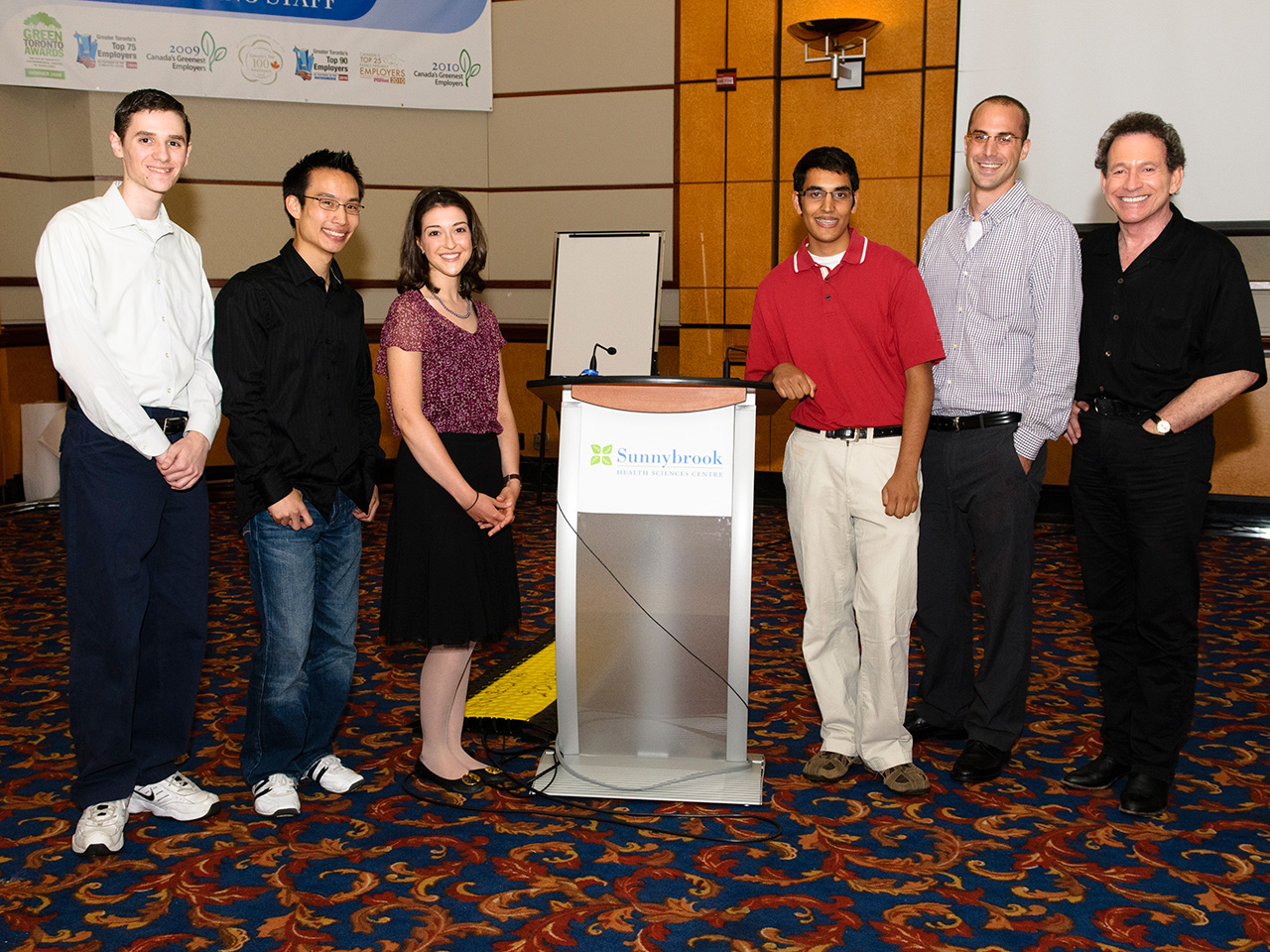Summer studentship program trains future scientists
By Eleni Kanavas
After weeks of intensive research and collaboration with faculty at Sunnybrook Research Institute (SRI), university students in the summer research program took their hospital-based experiments out of the labs and shared their discoveries with judges and onlookers at a poster symposium.
Twenty-eight students participated in the annual Best Summer Research Project competition held on August 11, 2010 in the McLaughlin auditorium at Sunnybrook Health Sciences Centre. The posters illustrated and explained the research methods, observations and results of the experiments students focused on with their supervisors during four-month summer studentships.
The program aims to give students enrolled in a university program in Canada a unique hospital-based research experience that showcases the postgraduate environment as a prospective career. A total of 108 summer students were hired this year through research administration. The summer employment term runs from May 1 to September 30, 2010.
Through hands-on research training, students get the opportunity to work in the lab and interact with SRI scientists, attend a weekly seminar series to learn about various research areas and topics, as well as participate in the end-of-summer research project competition hosted by SRI.
Next Generation of Scientists
This year’s competition represented the disciplines of clinical epidemiology (CE), clinical integrative biology (CIB), imaging, and molecular and cellular biology (MCB). At a total of 28 entries, five entries were from CE, 11 from CIB, four from imaging and eight from MCB. A panel of judges from each discipline chose four students, one from each discipline, who took top honours. In addition there was a second-place winner in CIB.
Announcing the winners at the end of the competition, Dr. Michael Julius, vice-president of research at Sunnybrook, said, “It’s been absolutely brilliant having you here. You are the lifeblood of SRI, and we’re as dedicated to you as we are to our science, because at the end of the day, you are the ones who will make our science grow.”
First-place winners received a cheque for $500, individualized awards and a certificate of excellence. Their names will also be engraved on display plaques in the research institute. The second-place winner received a cheque for $300 and a certificate of excellence. All of the students who presented a poster received a certificate of participation.
Alvin Lee, who was supervised by Dr. Robert Jankov, placed first in CIB for his project, “The effects of Rho‐Kinase inhibitor on chronic inflammatory lung disease in a neonatal rat model.”
“I went around and looked at a lot of the posters and it’s amazing the hard work everyone has done,” said Lee, a second-year student at the University of Alberta. “I was not expecting to win and had joined the poster competition to showcase the work I did during the summer.”
Other award winners for each discipline were as follows:
- Lauren Greenwood (second place, CIB, supervised by Dr. Yana Yusanova), “Acoustics vs. Kinematics: In search of a diagnostic measure.”
- Stefan Hadjis (first place, imaging, supervised by Dr. Rajiv Chopra), “Treatment of prostate cancer using MRI‐controlled transurethral ultrasound therapy: from 2D to 3D.”
- David Katz (first place, CE, supervised by Dr. Don Redelmeier), “Are habituated motorists generally safe drivers?”
- Hiten Naik (first place, MCB, supervised by Dr. Juan Carlos Zúñiga‐Pflücker), “Activation of the delta‐like 4 promoter by FoxN1.”
The SRI summer student program also provides funding to supervisors who compete with a particular student. The institute received 28 applications, and funded 16.



